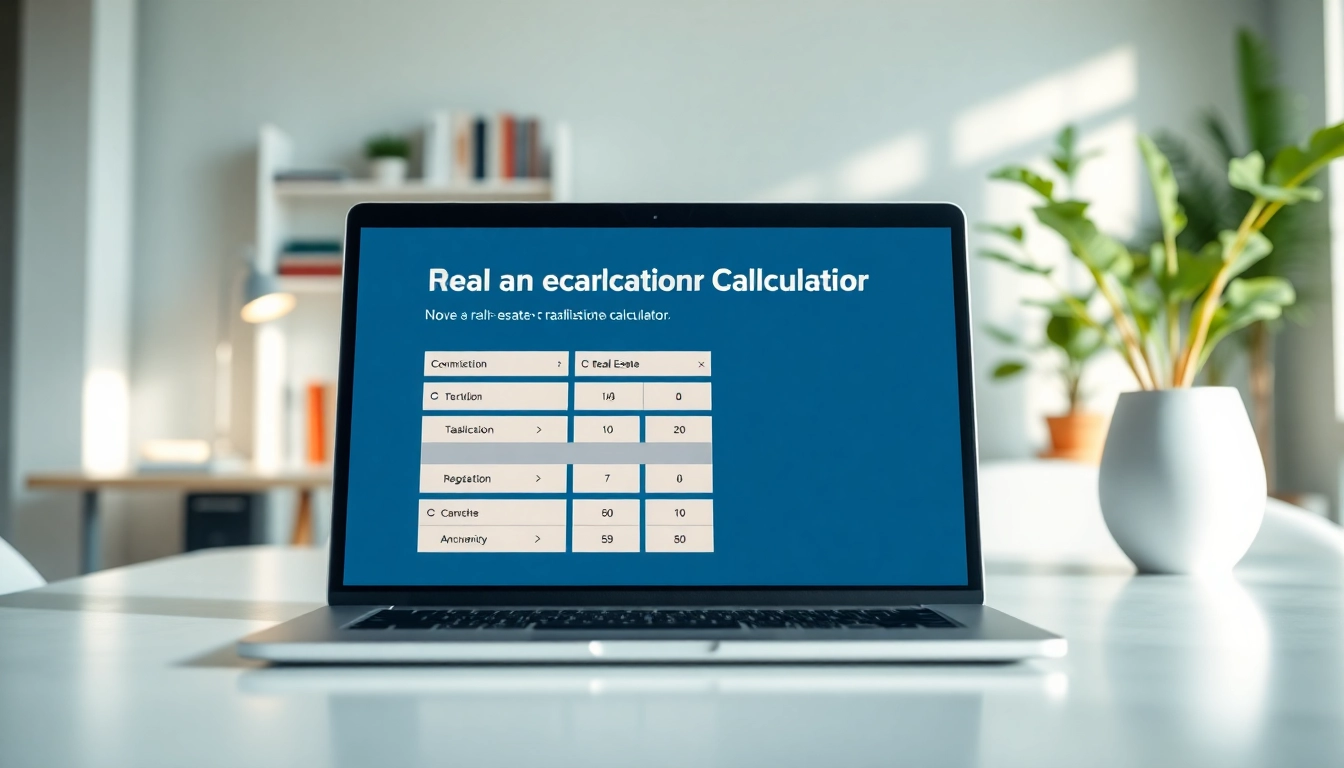Understanding Electrical Service Basics
In today’s world, where technology permeates every aspect of our lives, understanding how electrical systems operate is crucial for both safety and efficiency. One foundational element in any modern building—be it residential or commercial—is the Electrical Service. This not only powers our devices but also ensures that everything functions smoothly. In this article, we’ll dive deep into the fundamentals of electrical services, exploring their components and the necessity of professional installation.
What is Electrical Service?
At its core, electrical service refers to the provision of electrical power to a building or installation. It encompasses everything from the main service panel, which distributes electricity throughout the structure, to the wiring that feeds electrical outlets and appliances. The service must meet local building codes and standards to ensure safety and functionality. Residential electrical service typically provides 120/240 volts, which powers common household tools and appliances.
Key Components of Electrical Service
Understanding electrical service means recognizing its critical components, which include:
- Main Breaker Panel: This is where electricity enters your home or building, allowing you to control the flow to different circuits.
- Service Entrance: This includes the service drop or lateral, the meter, and all wiring connecting to the main panel.
- Circuit Breakers: These devices protect the electrical circuits from overloads, instantly shutting off power in case of faults.
- Grounding System: Ensures the safe dispersal of electricity and protects from surges or faults.
- Wiring Systems: The network of wires that distribute electricity throughout a space, which must comply with stringent safety standards.
Importance of Professional Installation
While DIY electrical projects may seem appealing to some, the importance of professional installation cannot be overstated. Trained electricians understand local codes, can identify potential hazards, and ensure the installation meets the necessary standards for safety and efficiency. Bad installations can lead to costly repairs, dangerous electrical fires, or equipment failure. Hiring a licensed electrician provides peace of mind that the job is completed correctly and safely.
Common Electrical Service Needs
As homeowners and businesses evolve, so do their electrical needs. Below, we explore some of the most common electrical service requirements seen in various situations.
Residential Wiring Upgrades
With advancements in technology, many homes require circuit upgrades to handle increased loads. Modern appliances and devices often demand more power than older systems can safely provide. Upgrading wiring to accommodate new systems prevents overload and extends the life of household appliances. Some benefits of residential wiring upgrades include:
- Increased Safety: New wiring reduces the risk of electrical fires and shock hazards.
- Enhanced Efficiency: More efficient wiring can lower energy consumption.
- More Power Outlets: Adding additional outlets reduces the reliance on extension cords and power strips.
Lighting Solutions for Every Space
Lighting dramatically impacts the functionality and aesthetics of any space. Whether it’s enhancing the ambiance in residential settings or providing sufficient lighting for commercial spaces, experts can design and install lighting solutions tailored to specific needs. Common lighting upgrades include:
- LED Installations: Energy-efficient LED lights not only save on electricity bills but also last longer than traditional bulbs.
- Smart Lighting: Integrated lighting systems that allow for remote control and scheduling via smartphone applications.
- Accent Lighting: Highlights specific areas or features within a space, enhancing its visual appeal.
Electrical Services
Electrical can happen at any time and may pose significant risks. Having access to electrical services can prevent damage and ensure safety. Common include:
- Power Outages: Sudden loss of power can disrupt daily life and work; understanding how to respond is crucial.
- Flickering Lights: This could indicate poor connections or overload issues that need immediate attention.
- Electrical Shocks: Any incident that causes a shock necessitates immediate professional evaluation to prevent further danger.
Choosing the Right Electrical Service Provider
Hiring the right electrical service provider is critical for any residential or commercial project. A well-chosen electrician can make all the difference in ensuring safety, efficiency, and satisfaction. Here’s what to consider when choosing a provider.
What to Look for in an Electrician
It’s essential to evaluate potential electricians to find one who meets your needs. Some qualifications include:
- Licensing and Certification: Confirm that the electrician is licensed and certified, indicating they have undergone the necessary training and adhere to local codes.
- Experience: Experienced electricians will have dealt with diverse scenarios, providing more reliable solutions.
- Specialization: Depending on your project type—residential, commercial, or industrial—you may need an electrician with specific expertise.
Verifying Certifications and Licenses
Before hiring an electrician, take steps to verify their credentials. Check if they hold valid licenses and certifications from recognized organizations. This not only ensures compliance with local laws but also reflects a commitment to professionalism and quality. Additionally, confirm their insurance status to protect yourself from liability should accidents occur during the project.
Getting Customer Reviews
Customer testimonials and reviews are invaluable resources when weighing your options. Consider looking up online reviews, asking for references, and even consulting local community forums. Positive feedback can indicate reliability and quality service, while consistent complaints may suggest potential issues to be wary of.
Best Practices for Electrical Safety
Ensuring electrical safety should be a priority for anyone managing electrical systems. Understanding best practices not only protects property but also saved lives. Below are essential safety guidelines that everyone should follow.
Regular Maintenance of Electrical Systems
Proactive maintenance of electrical systems can prevent many hazards. Regular inspections and maintenance checks enable the identification of potential issues before they escalate, including:
- Checking for Frayed Wires: Damaged wiring can lead to shorts and fires.
- Testing Outlets and Circuit Breakers: Ensuring these components function correctly typically extends their lifespan.
- Updating Old Systems: Older electrical systems may need a complete overhaul to meet modern safety standards.
Recognizing Warning Signs of Electrical Issues
Being vigilant and attentive to warning signs can save you from dangerous situations. Common signs include:
- Frequent Circuit Breaker Tripping: This indicates potential overload or faulty wiring.
- Burning Smell: A burning smell near electrical fixtures is a critical warning sign that should be assessed immediately.
- Buzzing Outlets: Noise from outlets may signal deeper issues requiring inspection.
Implementing Safety Protocols at Home
Practicing safety at home is essential. Simple protocols such as using surge protectors, not overloading outlets, and ensuring proper grounding can prevent many common hazards. Moreover, educating family members about basic electrical safety is an effective way to minimize risks. Consider conducting regular safety drills to ensure everyone knows their responsibilities during an electrical emergency.
Future Trends in Electrical Services
The field of electrical service is continuously evolving, with emerging trends that promise to reshape how we interact with energy systems. Here, we explore some of the most exciting developments on the horizon.
Smart Home Electrical Solutions
Smart home technology is booming, allowing homeowners to control their electrical systems remotely. Innovations include smart switches, programmable thermostats, and advanced lighting control systems that offer convenience, energy efficiency, and personalized environments. With the right setup, homeowners can monitor and manage their energy consumption effortlessly.
Energy-Efficient Installations
Energy efficiency is becoming a vital focus for electrical services, driven by environmental concerns and rising energy costs. This trend includes the installation of energy-efficient appliances and devices, which not only help in conserving energy but can also lead to significant cost savings over time. Modern electrical service providers also offer energy audits to identify areas for improvement.
Integration of Renewable Energy Sources
The integration of renewable energy sources, such as solar panels, into standard electrical systems is gaining momentum. As technology advances, more homeowners are opting for renewable energy solutions, which promise sustainability and reduced reliance on traditional power sources. Electricians who are well-versed in integrating renewable systems can help property owners capitalize on these emerging technologies.



